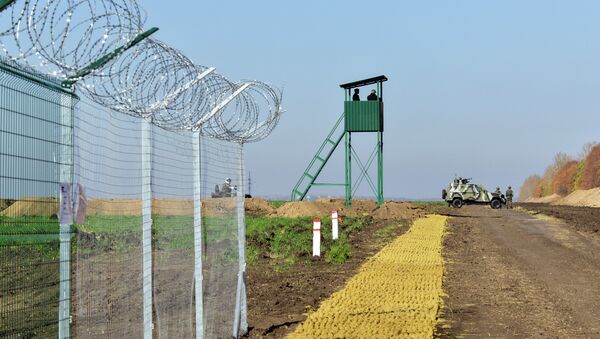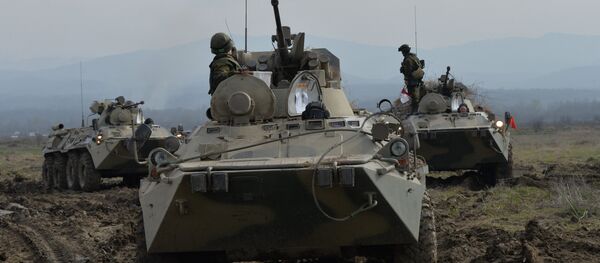He added that the inspection of Russian military units in Rostov region, to be held from January 16 through 19, was meant to determine the size or confirm the absence of any military activities there.
None of the previous such inspections have shown any evidence of any “Russian aggression” against Ukraine.
“The inspectors can record the presence or absence of personnel, staffing and movement of troops, stockpiles of weapons and ammunition,” Ryzhkov said.
In addition, the Ukrainian inspectors will be briefed by the commanders of the Russian units on their structure and combat assignments.
The inspection will also involve experts from Germany and Serbia.
A similar inspection of Russian military units by Ukrainian experts in February 2016 revealed “no military activity by the Russian Armed Forces in the given region and found Russia in full compliance with the provisions of the Vienna accords.”
“Air and land”
Ukrainian Defense Ministry spokesman Oleksandr Motuzyanik said that the inspection of the border area of the Rostov region will include on-ground observations and ones made from helicopter.
He added that the inspection team will also include representatives from Denmark and Canada. “The inspection group will include two representatives from Ukraine, one from Canada and one from the Kingdom of Denmark,” Motuzyanik said.
“The geopolitical situation has changed: until last year, we had so such combat readiness units stationed along the Ukrainian border at all because this area was considered absolutely safe and “friendly.” So there was a 'black hole' which we had to plug fast,” military expert Viktor Murakhovsky said in an interview with the online paper Vzglyad.
Inspections benefit Russia
Commenting on the upcoming inspection, political scientist Alexander Perendzhiev said that he did not understand all the hype that surrounded it.
“In 2015, Ukraine also inspected our units stationed in Rostov region, looking for evidence of Russian assistance to the Donbass militias. They found none but they still keep talking about “Russian aggression,” Perendzhiev told Vzglyad.
He said he hoped that the new wave of Kiev’s interest in the imaginary Russian support for the Donbass militia was not associated with a planned offensive on the Donetsk and Lugansk People’s Republics and Kiev’s desire to explore Russia’s border regions the Donbass militia allegedly get their supplies from.
Many military experts believe that Russia is more interested in such inspections than Ukraine.
“It is good for us to demonstrate that all these allegations about ‘Russian aggression’ simply hold no water. Holding military inspections in the territory of an aggressor state sounds a bit strange, does it not?” Perendzhiev wondered.
He added that the results of these inspections would help dispel the myth about “an aggressive Russia.”
Never miss a story again — sign up to our Telegram channel and we'll keep you up to speed!




